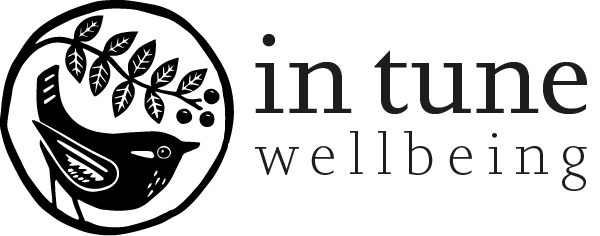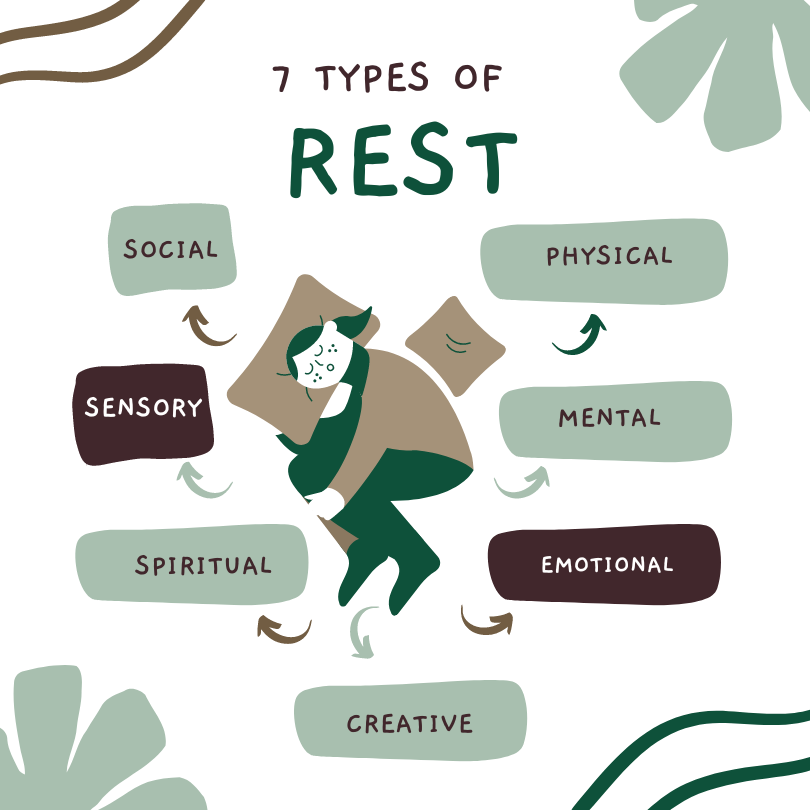Rest is much more than getting a good night’s sleep – in her book Sacred Rest, Dr Dalton-Smith identified 7 types of rest that we all need to stay healthy and avoid burnout. Have a look at the descriptions of the different types of rest below and see if you can identify where you might be falling short…
Physical Rest
Sleep is the obvious one here, but Dalton describes this as passive rest – active physical rest is also important and that’s more about using your body in restorative ways like yoga, stretching or going for a walk. All of which can promote better quality sleep.
Mental Rest
Giving your mind time to process information and recharge by taking breaks from cognitive activities, constant stimulation and quietening mind chatter. Being mentally rested improves our mood, memory and stress levels and helps us to be focussed and alert. Meditation is a great way to get mental rest.
Emotional Rest
Having the freedom to express your feelings without judgement and stop people pleasing behaviours. Communication is key here – emotional rest might involve an honest conversation with your partner, talking to a trusted friend or therapist or journalling about your true feelings.
Social Rest
We’re social creatures but being with others can drain our energy (especially if you’re an introvert) and we need regular breaks from social commitments. Social rest is also about recognising and avoiding toxic relationships and spending time with people that ground and validate you.
Sensory Rest
Reducing sensory input from things like bright lights, background noise or a messy environment which can become overwhelming. Sensory rest might look like noise cancelling headphones, calming music, time in nature, avoiding screens or maybe a quiet, clear space in your home that you can escape to.
Creative Rest
This is all about recharging your creative energy, finding inspiration and noticing beauty either outside in nature or through the arts. Creative rest stimulates your imagination and helps to clear any creative blocks that you might be experiencing.
Spiritual Rest; This doesn’t have to be about faith or religion but comes from a sense that we’re part of something bigger than ourselves and our lives have meaning and purpose. Some examples of spiritual rest would be connecting with nature, volunteering, practicing gratitude or meditation.
If this has piqued your interest then you might want to do the Quiz on Dr Dalton-Smith’s website which can help you to identify which types of rest you are deficient in.
A huge part of the work that we do at In Tune Wellbeing is supporting you to get the rest that you need – Mindfulness, Gong Sound Meditation, EcoNidra and Forest Bathing cover pretty much all of the 7 types of rest listed above. The key is finding what works for you and 1:1 coaching can help you to integrate restorative rest into your life for greater balance. Book a free discovery call with Claire or take a look at our current offerings with the link below…

